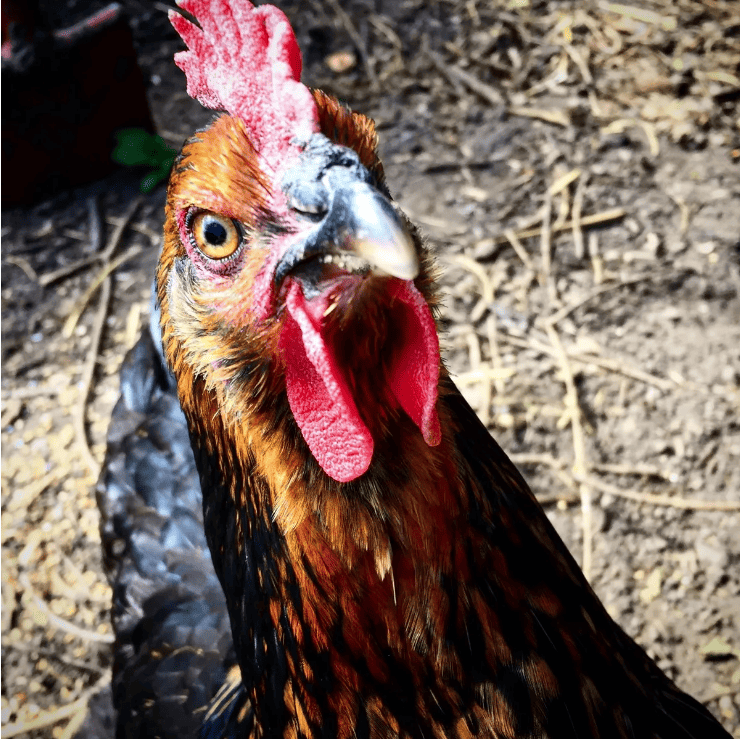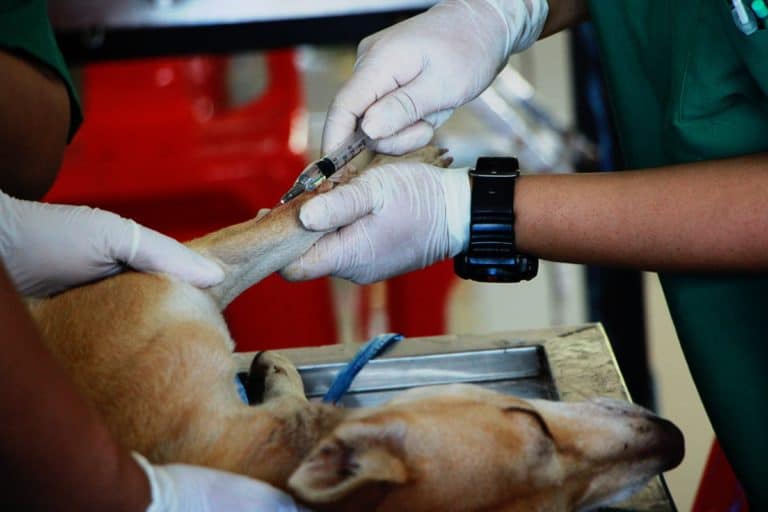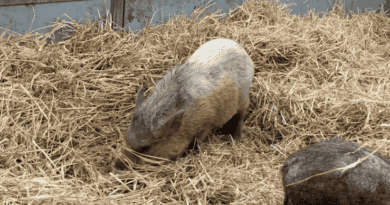Are organic chickens vaccinated? [explained]
This article was first published on backyardchickenscoop.com.
Poultry flocks, like other aviary birds, need to be prevented from various types of illnesses and diseases. Vaccination has always been an effective means to reduce or even completely eliminate various types of diseases and illnesses that could threaten the lives of thousands of chickens in a big place or even a handful of them in a private home in a village.
However, there are some doubts as far as organic chickens are concerned. Many of them would like to have the right answer to the question: Are organic chickens vaccinated?
Some people even go a step further and ask the question if a chick is vaccinated can it still be organic. These are indeed interesting questions and I will try and find answers for the same over the next few lines.
There is no law that prevents a chick from getting vaccinated and still being classified as organic. Your worldview might tell you otherwise though. In essence, vaccines are designed to boost a chicken’s own immune system and prepare it for combating future infection on its own.
Organic chickens are known to be more subjected to certain infections as they are allowed more free open spaces, and can not get some of the preventive treatments conventional chickens get. So vaccination of organic chickens really make a lot of sense.
What is the practice for conventional poultry?
Almost all owners of conventional poultry are vaccinated against a number of diseases. The list is quite big and the diseases could include Newcastle disease, Marek’s disease, Bronchitis that is infectious in nature, fowl pox, and also fowl cholera. These diseases can easily be transmitted from one chicken to another and they can wipe out entire poultries.
Hence, there is a need to have the chickens insured. There are some routine vaccination programs that are recommended and the same should be followed. However, at the same time, we also need to bear a few more things in mind.
Vaccination cannot offer the benefits that best sanitation practices and biosecurity give. Hence, a good combination of vaccination along with sanitation and biosecurity is the way forward.
Issues with regard to vaccination of organic chicks
There is nothing in the law that prevents a chick from getting vaccinated and still being classified as an organic aviary bird. However, the best way forward would be to check with the respective state and provincial governments as far as the definition of organic chickens is concerned.
There are some guidelines that certification authorities have in place. It is a good idea to check on these guidelines. According to most experts, chickens that are fed and grown organically qualify for being organic chickens. This has nothing to do with the vaccinations that they are given.
Vaccinations in no way should impact the organic growth and rearing of chickens. This applies not only to chickens but also to other animals that are used as human food. They include cows, goats, buffaloes, turkey and even some species of fish.

What are the tips for successful vaccination?
Whether it is organic chicken or broiler chicken, there are many things that are common as far as vaccination is concerned. Adequate care should be taken when it comes to handling vaccinations.
They should be stored properly and transported properly at the right temperature. The expiry dates should be strictly followed.
If these are not followed it could lead to vaccination failure.
The good thing is that each and every vaccination that is used on chickens for various possible diseases and illness come with clearly defined instructions, protocols and other such things. Things will be easy if you are able to follow the right protocols and practices.
Simultaneous vaccination is important
There is a need to understand the importance of simultaneous vaccination of all the chickens. If this is not done, there is a high risk of the infection spreading to other chickens rapidly. This may result in partial or complete failure of vaccination.
It applies both to organic chicken and the conventional broiler chicken and even to chickens that are not brought up and reared the organic way.
Newly hatched chicks, come with some passive immunity. This is because of the immunity that is passed from the mother through the eggs. You must be aware of the right time for the vaccination of chicks.
Vaccinating them below 10 days of age may not provide the desired results or the immunity may not be long-lasting. However, there is an exception to this rule and it is for vaccination against Marek’s disease.
This vaccination should be given to the chick on the day of its birth and again it applies both to organic as well as non-organic chicks.
Important to rotate vaccine stocks
As mentioned above, there is a need to rotate vaccination stock regularly. You should strictly go by the expiry dates and there cannot be an exception to this rule.
Any vaccination that is nearing the expiry date should be used and if not it should be discarded straight away. Further, make sure that the vaccination is administered the right way through the right route.
In case some birds are sick, it would be better not to vaccinate them till such time they recover from the sickness. However, here again, there are some exceptions. You must not delay vaccinating the birds against fowlpox or against dangerous outbreaks of laryngotracheitis.
Few more precautions to be aware of
We need to bear in mind that almost all vaccinations that are used on aviary birds have living organisms inside them. They are also disease-producing agents. Hence, you must know how to handle them with care.
Many vaccinations are mixed with drinking water. Make sure that the water is free from chlorine and various other forms of sanitisers.
This is because live-virus vaccines could get completely destroyed. Once the vaccination process is completed, please make sure that the opened containers are disinfected or burned. This will prevent the accidental spread of disease to other poultry.
Where to buy the vaccinations?
Poultry and hatcheries are perhaps the best and most trusted sources of vaccines, especially if you have organic chickens in your coop. However, you may have to search a bit when it comes to vaccinations for organic chickens.
In case you have only a few chickens with you, then cost could be a bothersome thing for you.
You can overcome this problem by going in for group vaccinations taking into consideration the vaccination needs of your neighbourhood. This will help you to procure vaccinations in large quantities and this will bring down costs quite significantly.
Conclusion
To sum up there is nothing wrong with vaccinating an organic chicken and this in no way takes away the stamp of it being organic. Vaccines are required both for organic and non-organic chickens. It prevents the whole lot from some deadly illnesses and diseases.
These diseases see no difference between organic or non-organic aviary birds. Vaccination is an important and critical process and it should be done in time, after taking the right care.
Go to backyardchickenscoop.com to learn more about raising a small flock in your own backyard…


